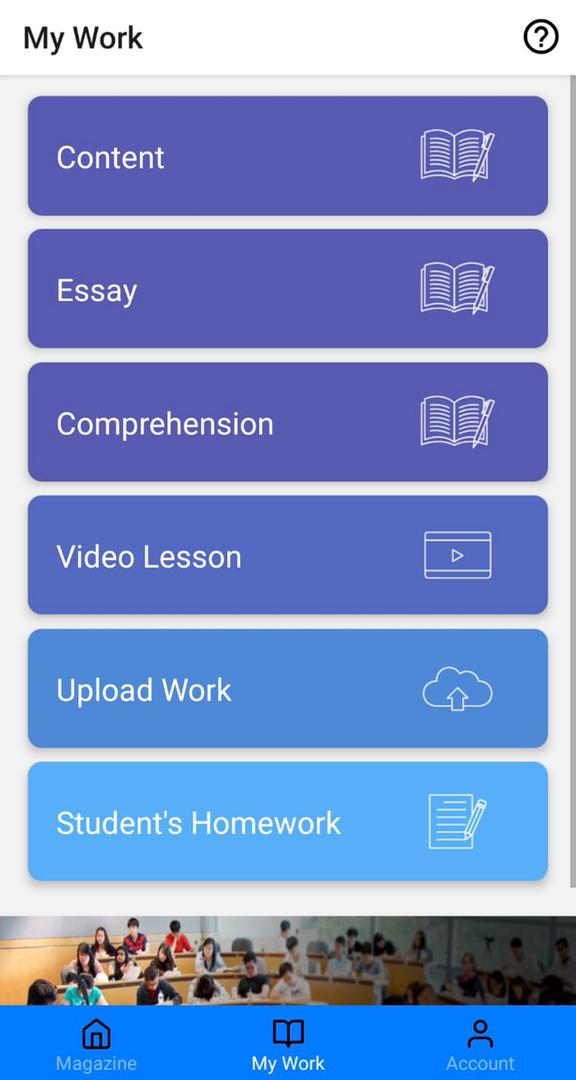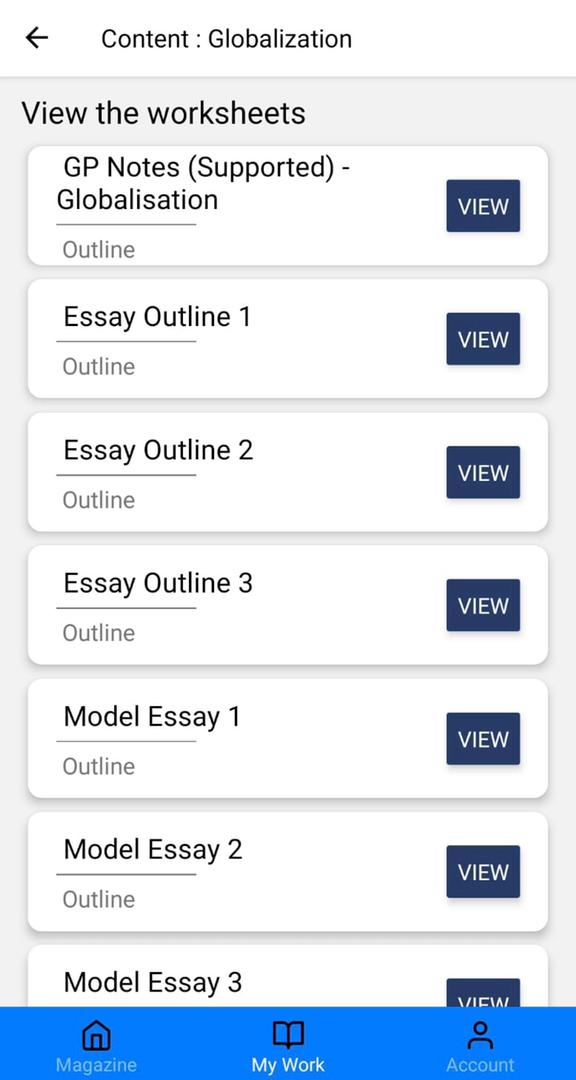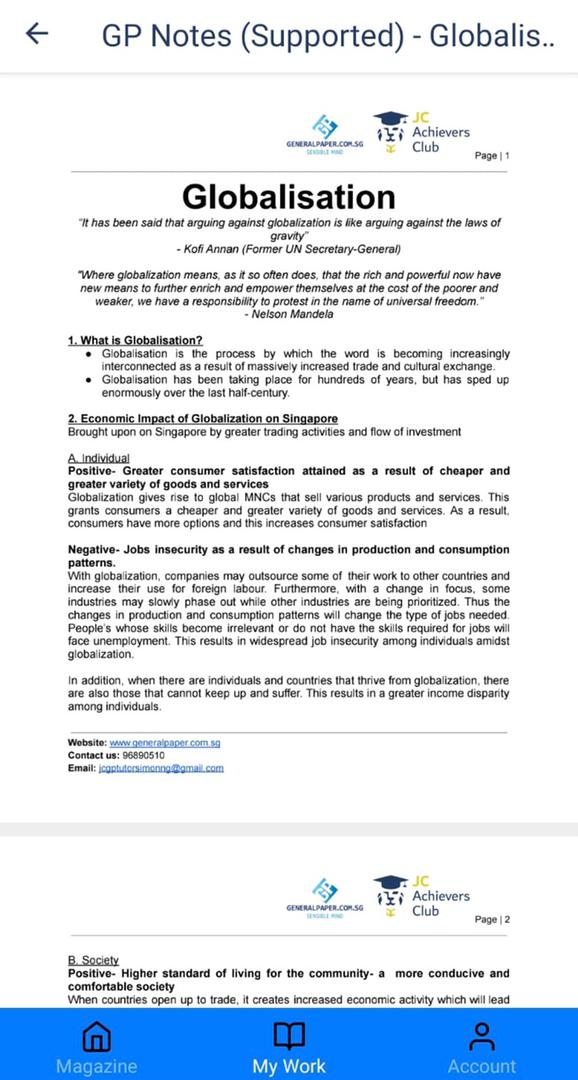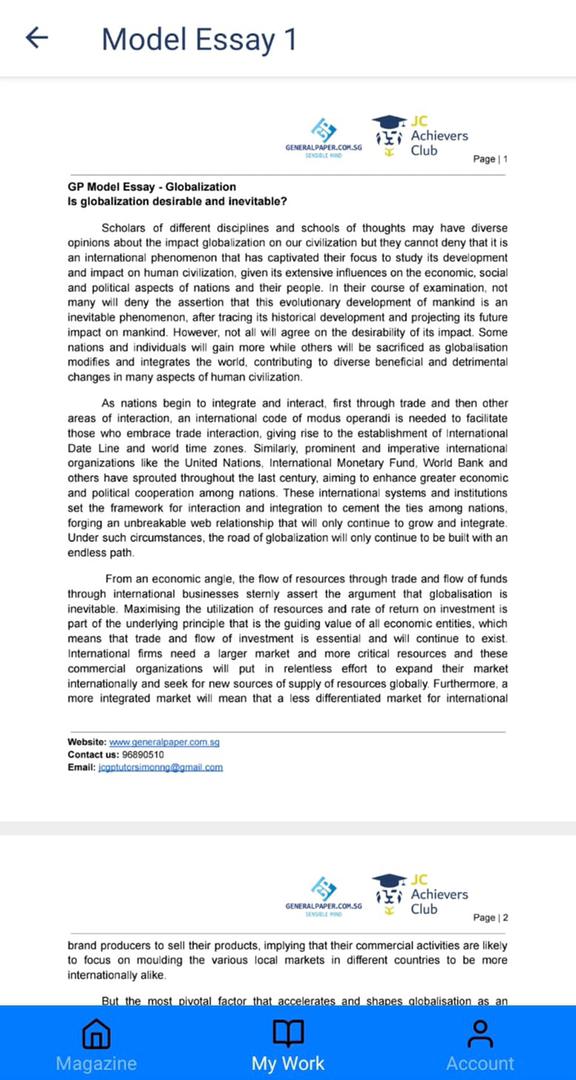GP Tuition Online on Education | General Paper Tuition
Be part of our vibrant learning community
Join now to get more learning resources like this

Join our FREE GP Learners Club
to learn anywhere and anytime!
Be a digital learner
and get Grade A for GP
Get learning resources Now?
GP Study Magazine
and cultivate writing and answering skills
 Learn More
Learn More
GP Videos | Content Enrichment |
GP Essays | Infographics | GP Facts
How does education affect the society?
Find out how education can contribute to the social development of countries in the modern world. For instance, education at schools is important in the creation and reinforcement of social cohesion as individuals from disparate communities can interact and understand each other better.
Video #1: Education creates differences in us.
On one hand, education promotes elitism where it only focus on the best student. This arose from the principle of meritocracy in talent selection which has exacerbate segregation and creation of different social class. As a result, this can create social divide in our society where elites high up on the social pyramids may feel a greater sense of superiority and discriminate the weak. Consequently, the cohesiveness of the society will be undermined. On the other hand, education can also function as a social leveler to help the underprivileged to move up along the social ladder, if given equal access to education. Furthermore, education will allow greater interaction between the privileged and underprivileged which will cultivate mutual understanding and tolerance. Hence, this will help narrow the social divide.
Video #2: Books as a source of entertainment
Nowadays, books are still popular for their recreational functions. People read for fun at their own pace to enjoy their leisure time. However, visual forms of entertainment, including televisions, videos and movies, becomes increasingly common, for they are more interactive and engaging.
How else can education affect the society?
Education plays a large role in the society. It shapes the society and acts as the mould. With education, people can better understand what is right and what is wrong, as well as the impacts of their action, and where their culture stems from and their importance.
To cultivate moral individuals
Education cultivates moral individuals because it helps to provide people with a moral compass. With knowledge, people learn the severity of certain actions, as well as how to prevent them. They understand that all actions have an impact, either good or bad. In addition, many countries make moral education classes compulsory for students, so that they learn the principles of right and wrong.
According to the most recent data from the U.S. Bureau of Justice, 56 percent of federal inmates, 67 percent of inmates in state prisons, and 69 percent of inmates in local jails did not complete high school. Additionally, the number of incarcerated individuals without a high school diploma is increasing over time.
To preserve cultural heritage
Education ensures that students learn their country’s culture so that they can understand why there are certain norms that the country follows, or festivals that they celebrate and so that the roots of the country isn’t lost to the globalising and increasingly homogenous world.
For example, in Singapore, we learn from our history lessons how we build our country from the kampong it was to the bustling city it is today, so that we are more appreciative of how far we have come and so that we understand that we should continue to pass down the ‘kampong spirit’ so that Singaporeans remain friendly and helpful towards one another.
To build civic order and a cohesive society
Education helps to build order and a cohesive society as it teaches people the importance of remaining harmonious. For example, in Singapore, we are taught that racial harmony is very important because Singapore is already so small and diverse, we have to stick together as the only difference between the different races are insignificant things like skin colour.
In addition, many political leaders agree, such as the Chief Minister of Punjab, Pakistan, Shahbaz Sharif, who said earlier this year that education “will help end terrorism, extremism, poverty and unemployment.” Without the displacement and economically ravaging effects of conflict, people affected by poverty are less likely to fall further down the rabbit-hole of chronic poverty and be able to escape or avoid poverty and promote further peace.











